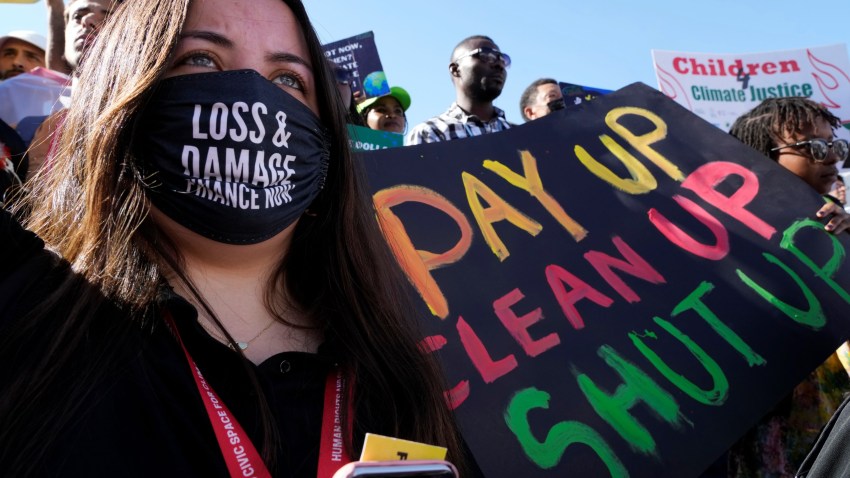The United Nations COP27 Climate Change Summit concluded Sunday in Sharm el-Sheikh, Egypt, after a two-day extension led to a breakthrough in negotiations to set up a “loss and damage” fund. The demand for the fund—by which rich, industrialized countries from the Global North will compensate developing countries for the historical impacts of climate change that cannot be avoided by either mitigation or adaptation—was considered non-negotiable by countries in the Global South. After hours of tense negotiations that included threats to withdraw from the talks, the two sides struck a deal that will provide assistance to the nations worst hit by climate change, without any assumption of liability by the funding states.
For countries in Africa, which is disproportionately affected by the global climate crisis despite being responsible for the lowest historical output of greenhouse gas emissions, the agreement to allocate loss-and-damage financing is hopefully the first of many necessary steps toward a fairer climate transition. The agreement represents a significant milestone in international climate diplomacy. The most vulnerable countries in the world have advocated for climate compensation ever since the U.N. Framework Convention on Climate Change was opened for signature three decades ago. Last year, a proposal to create a dedicated body for loss-and-damage financing was blocked by wealthier nations at the COP26 conference in Glasgow, and the issue was initially not even on the agenda for this year’s COP27 conference. But pressure from developing countries led to it being formally discussed for the first time, a concession that eventually led to Sunday’s agreement.
U.N. Secretary-General Antonio Guterres welcomed the decision to create the fund, calling it “a much-needed political signal to rebuild broken trust.” His sentiments were echoed by Sameh Shoukry, the Egyptian foreign minister and president of the COP27 climate summit, who said that the assembled delegates “rose to the occasion” and “listened to the calls of anguish and despair.” For a broad section of activists and civil society groups across Africa, scaling up financing for loss and damage, but also for adaptation and mitigation efforts, was the top priority coming into COP27. In a year that has seen numerous extreme weather events across the continent—including devastating floods in the west, cyclones in the south and a ghastly drought that is driving food insecurity in the Horn of Africa—the need for urgent action couldn’t be any starker.

